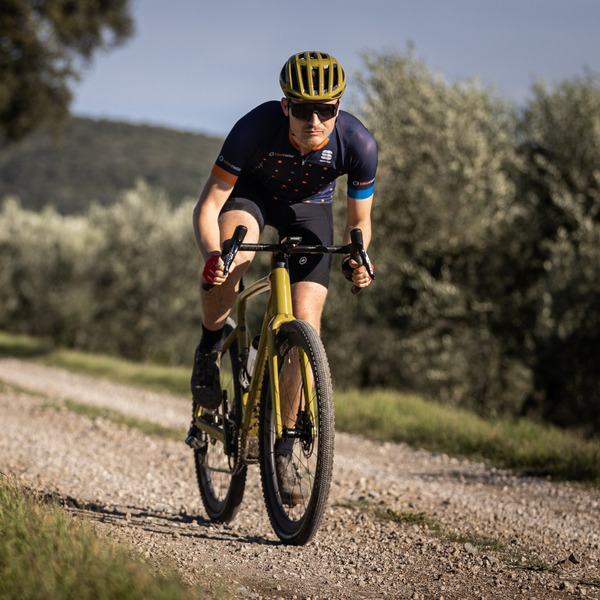Campagnolo Super Record Wireless is the Italian brand’s new flagship road bike groupset.
The 12-speed electronic groupset waves goodbye to both rim brakes and mechanical shifting, and ditches the brand’s iconic thumb lever.
While first impressions are promising, the new lever ergonomics represent quite a dramatic change.
The new shifters connect wirelessly via Bluetooth and ANT+ to the front and rear derailleurs. Super Record Wireless also uses smaller-than-standard chainring sizes and the cassettes start with a smaller 10t sprocket.
I was invited to Vicenza, Italy, the home of Campagnolo, to get a closer look at the new groupset and put it through its paces on a short 44km ride.
That is hardly enough time to make a definitive judgement on the groupset’s performance and longevity, but certainly sufficient for some initial impressions.
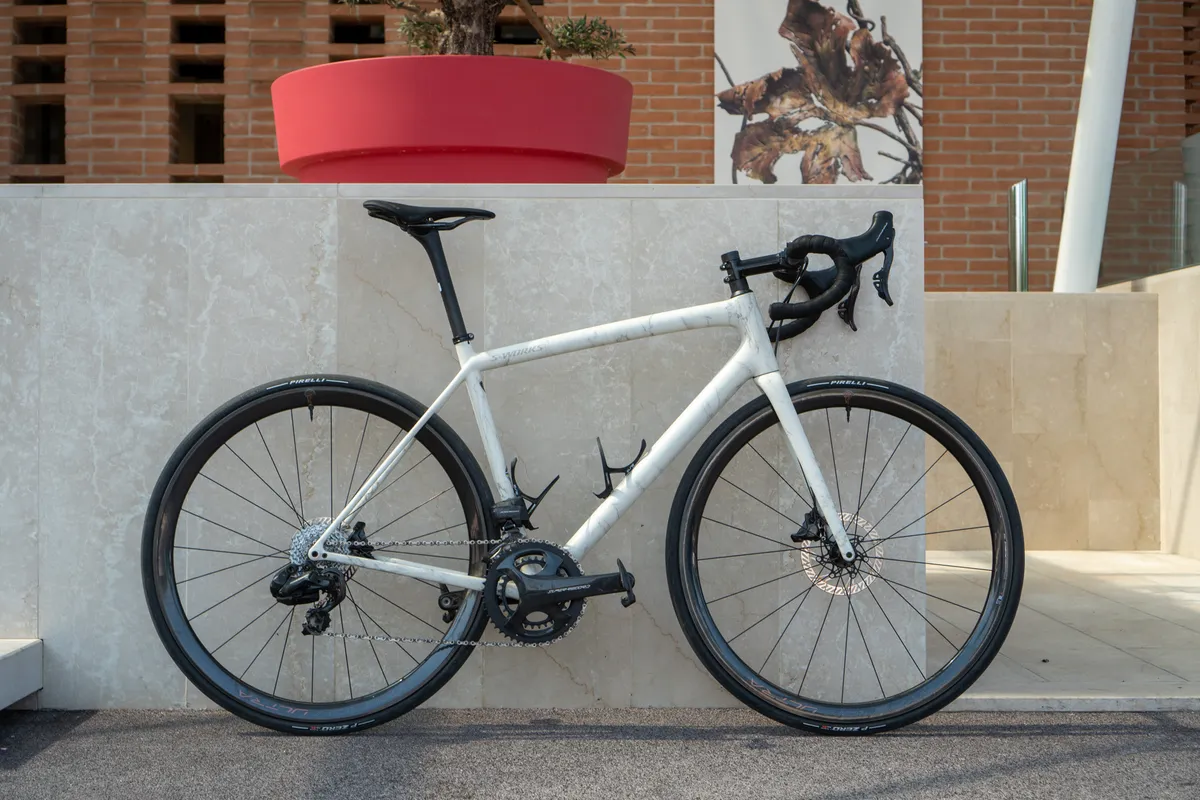
A featherweight Specialized S-Works Aethos was my test steed, shod with Campagnolo’s Hyperon wheels, which weigh a claimed 1,240g for the pair. The test bike had a 48/32 crankset and 10-29t cassette.
Want the full lowdown on the new groupset? Check out our in-depth news article.
Campagnolo Super Record Wireless shifting impressions
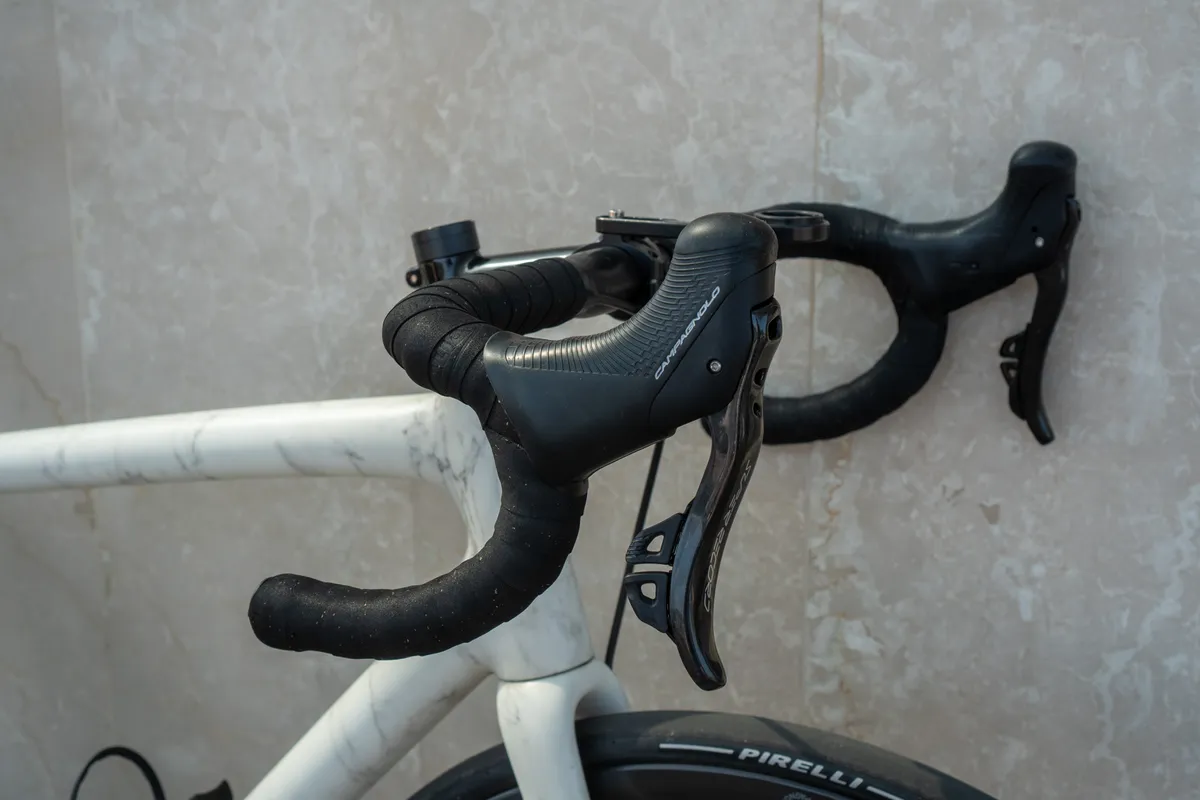
Super Record Wireless’ shifting logic represents a radical departure for Campagnolo.
Each lever features two separate buttons, with the uppermost button used to shift into an easier cassette cog and the lower to change to a harder gear.
On the left-hand shifter, the upper button is used to shift into the big chainring and the lower one the small chainring.
These functions are configurable in the MyCampy 3.0 companion app.
Campagnolo says it has increased the shifting speed over previous EPS, which was itself no slow-coach.
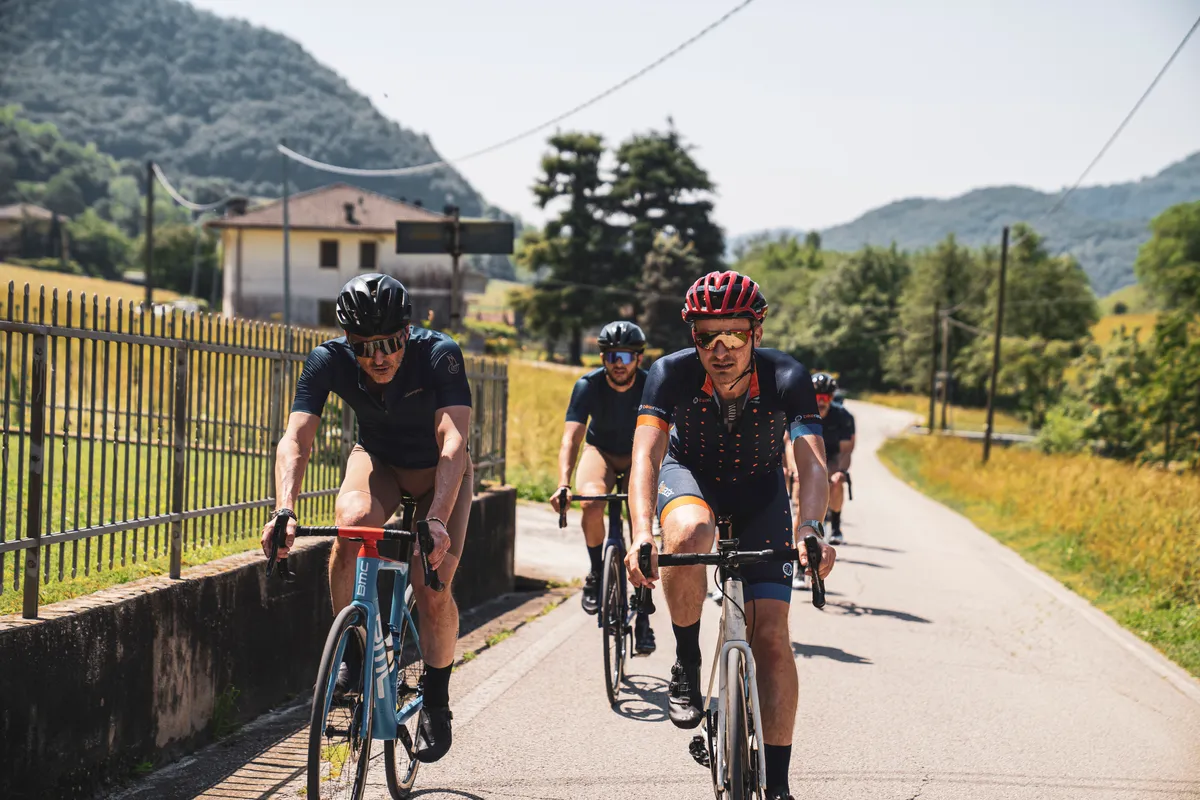
It’s hard to draw definitive conclusions after such a short ride (and without back-to-back testing). However, Super Record Wireless’ gear shifts feel as though they could be quicker than SRAM eTap, but slower than the latest-generation Shimano Di2 systems.
I appreciated the satisfying derailleur motor buzz sound whenever I called for a shift.
Although shifting speed was on the money, there was a slight pause between the front derailleur shifting and the auto trim feature kicking in.
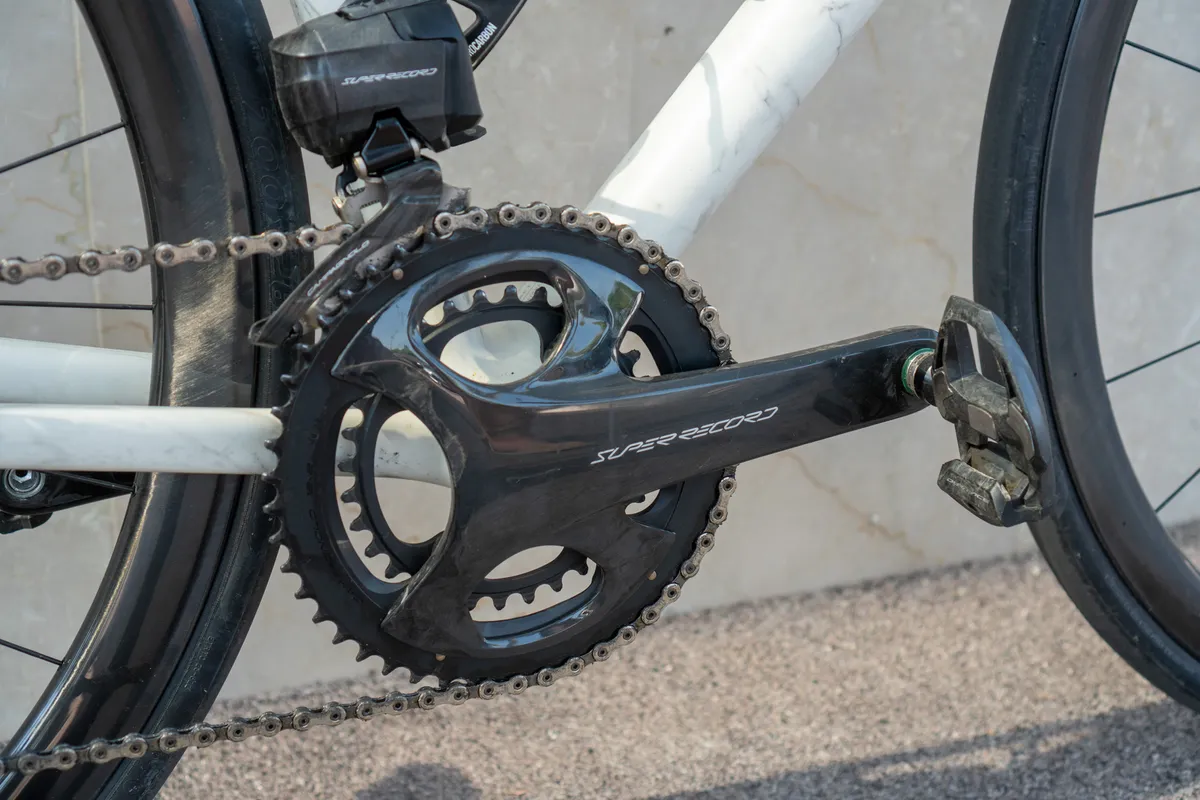
That said, I intentionally rode in some silly gear combinations and tested shifting frequently under load. Not once were the derailleurs flummoxed by my finger’s commands, shifting without fuss or delay.
The trademark ‘ker-clunk’ sound of the chain popping into place was ever-present – there was no mistaking when I'd changed gear, and there was more feedback compared to Shimano and SRAM.
Shifting through the cassette in one hit (Campagnolo calls this MultiShift) can be a bit crunchy in action, but the derailleur executes the command efficiently.
I also tested the system several times by shifting into the largest cog from four or five gears away to really put it under stress. Again, the rear derailleur shifted without fuss and I appreciated the smaller three-tooth jumps so I could more accurately fine-tune my gear.
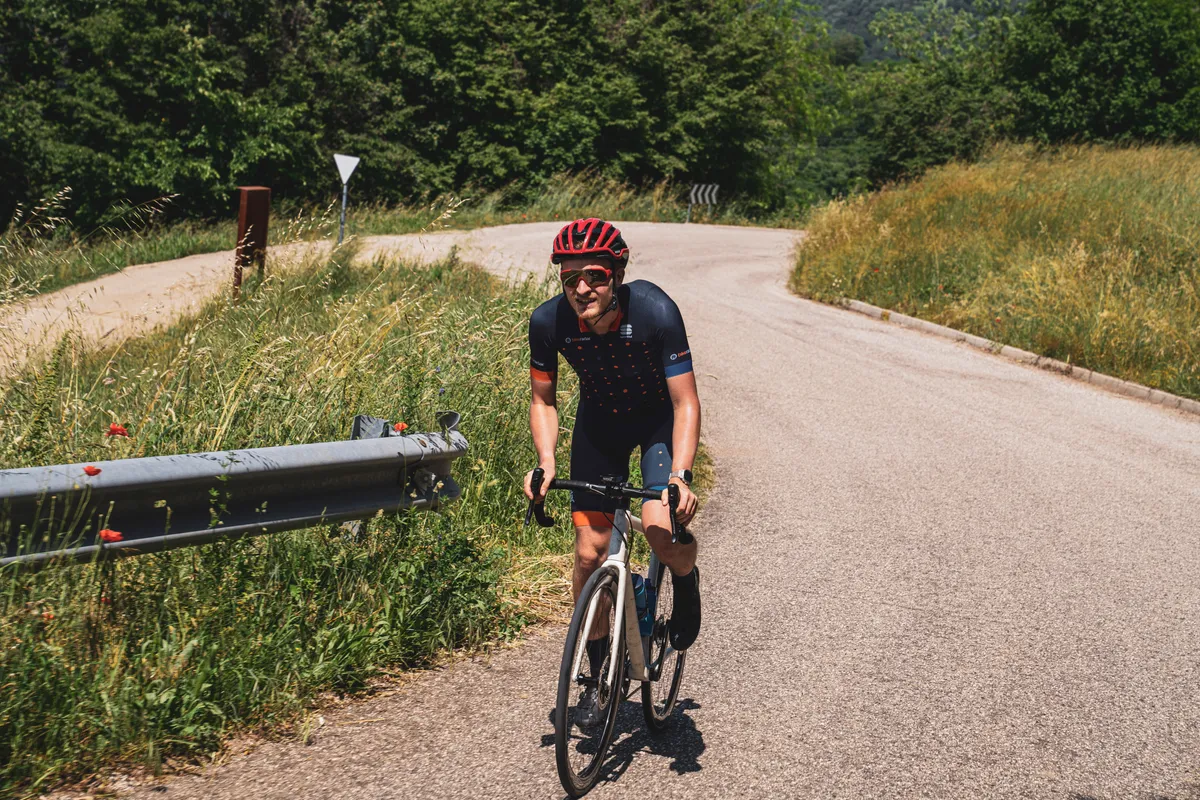
At times, the gear change veered towards being harsh, although more mileage will reveal if this is intentional. From experience, it can take a few rides for drivetrain components to bed in.
I didn’t get used to the new shifting logic during the 44km ride, shifting the front derailleur accidentally into the big ring while climbing. More time on the system will be needed to fully test how intuitive it is.
While the shift buttons are large enough to be distinguished easily while wearing summer gloves, I will be interested to see if this remains the case when wearing winter road gloves.
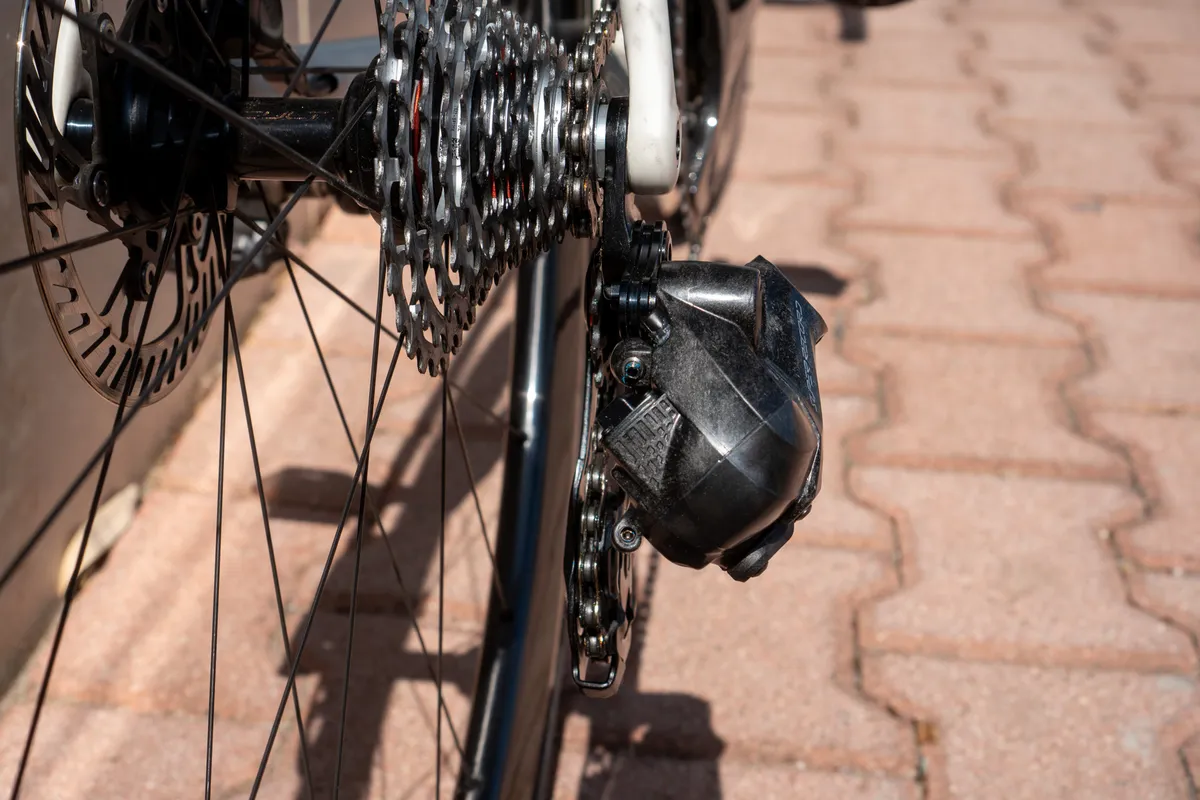
Riding behind others, it’s noticeable how both the rear derailleur and front derailleur have a bulkier appearance than even SRAM’s road eTap derailleurs.
Campagnolo Super Record Wireless braking impressions
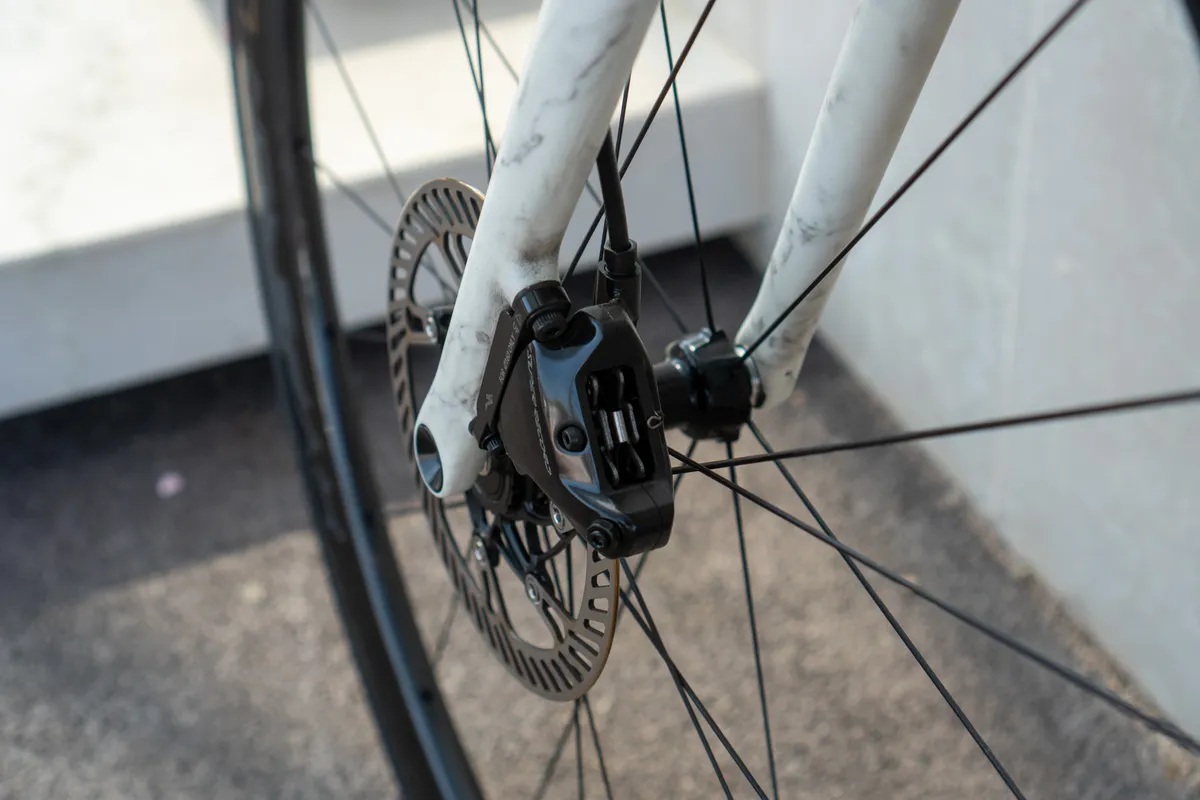
Campagnolo was already onto a winning recipe with its brakes and remains my personal favourite of the ‘Big Three’, offering best-in-class modulation and silence.
Luckily, not much has changed with Super Record Wireless’ braking. The disc brake rotors are unchanged and the calipers have received a cosmetic update with lighter disc brake pads, claimed to weigh 30 per cent less because they use a new aluminium backing plate.
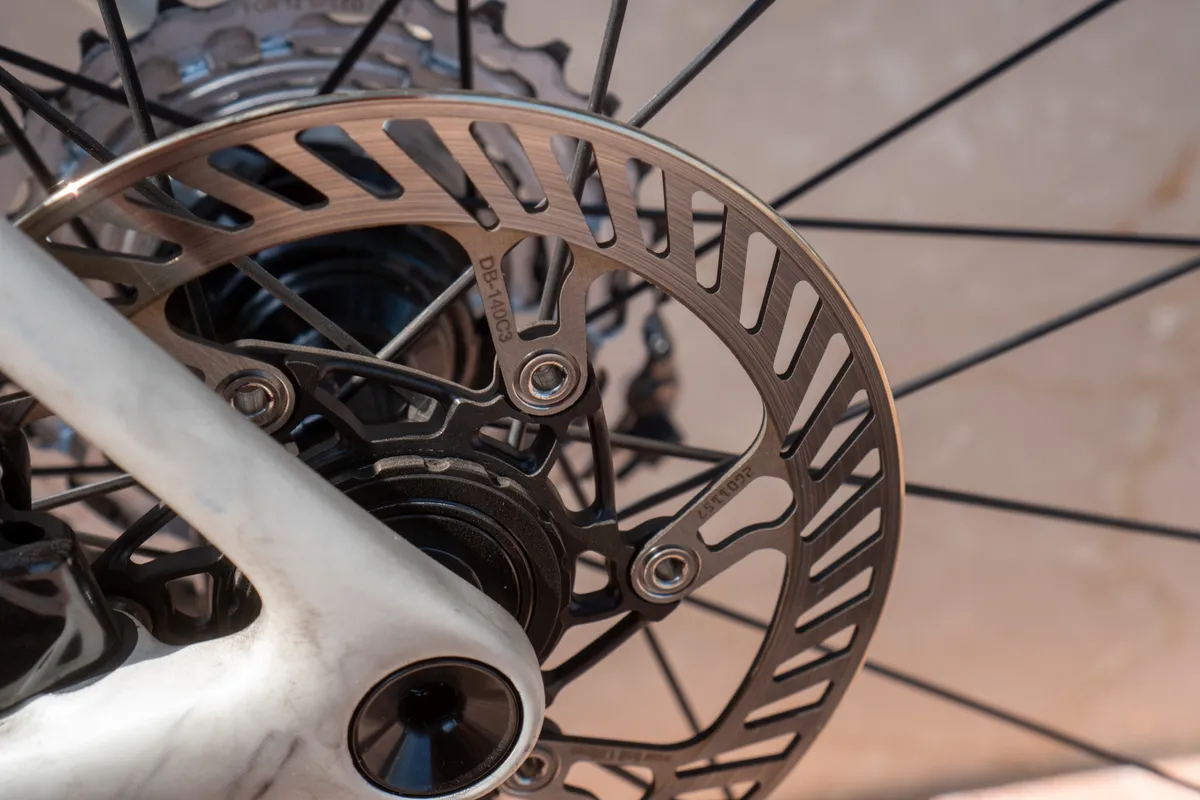
The brakes have bucketloads of power and modulation, while the lever feels akin to a well-tuned rim brake.
They retain a satisfying whirring noise when you’re braking at higher speeds.
There was no rubbing or noise whatsoever and, going by my experience of previous incarnations of Campagnolo’s brakes, I’m hopeful this will continue to be the case in further testing.
Campagnolo Super Record Wireless ergonomics
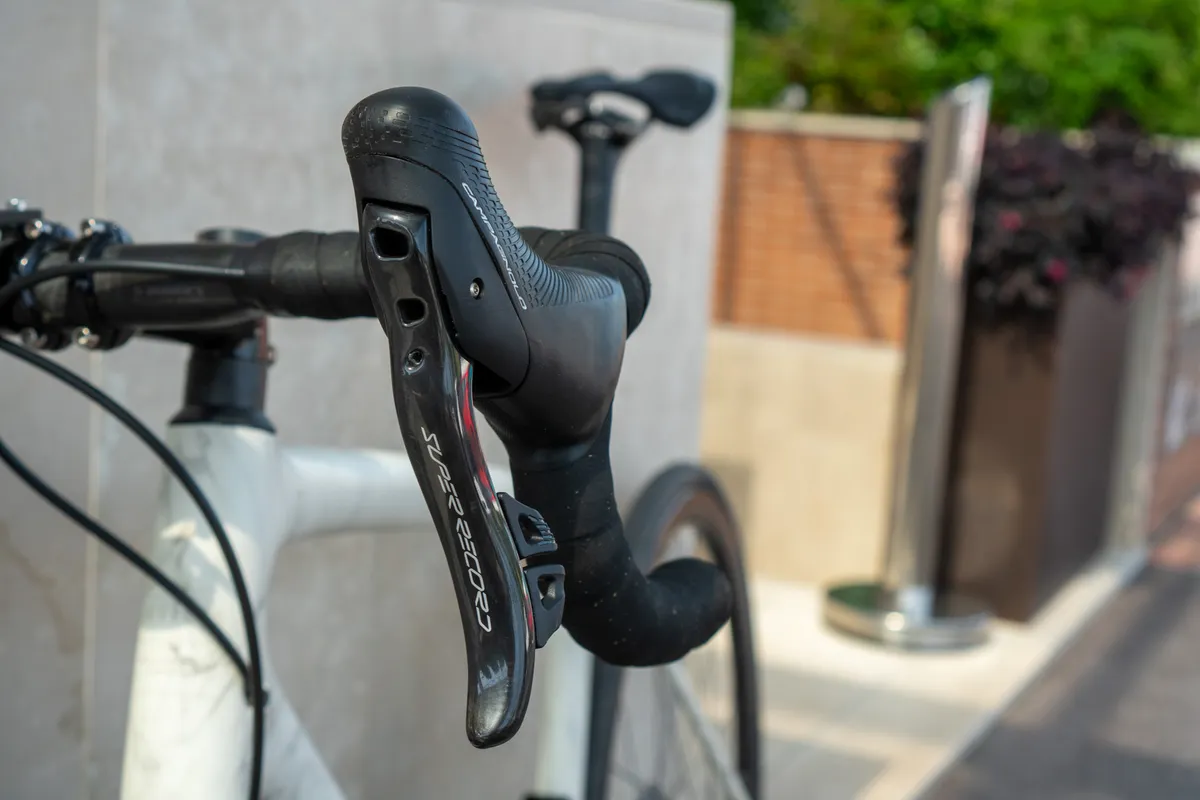
The ergonomics of the shifters are quite different from Campagnolo levers of old and my initial impressions were mixed.
They’re not as svelte as the brand’s 12-speed rim brake levers, but they are slightly shorter in height with a wider body compared to the previous hydraulic lever.
The new levers are also not as angular, nor do the tops cant inward. My hands didn’t feel as though they curled around the shifter quite so well as previous generations. Again, it’s possibly something I could get used to in time.
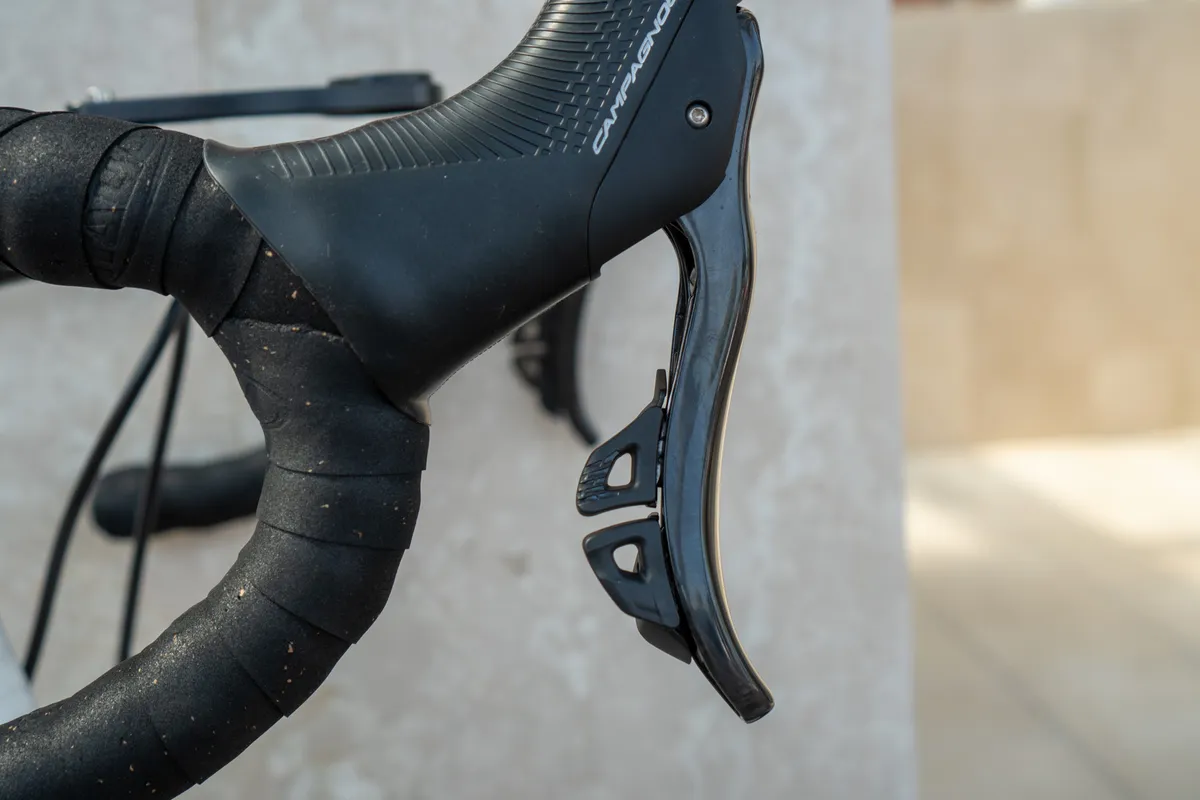
Campagnolo has removed the trademark bump on the hoods. It was a gripe for some, although I never had a problem with it. If nothing else, it should mean the shifter will play better with a wider range of handlebars because the transition from the bar to the shifter can be more pronounced on certain models.
The new hoods don’t feel as tacky as their predecessors.
There is also now a cut-out on the underside of the lever just behind the blade. On previous shifters, this section was solid so you could wrap your fingers round them comfortably. I couldn’t here, and the ridge around the cut-out is sharp.
Riding over cobbles and potholes on the test ride, my hand impacted the ridge, which I found quite uncomfortable.
Campagnolo Super Record Wireless early verdict
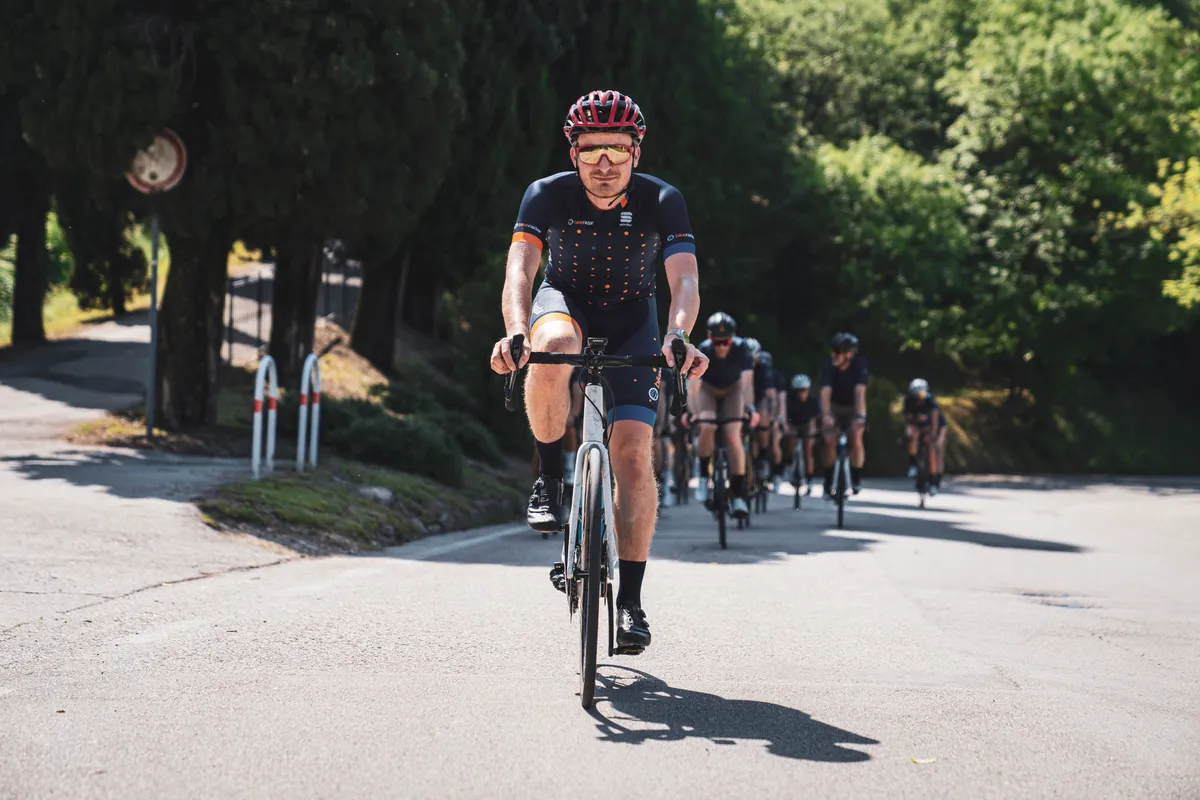
There’s a lot to like with Super Record Wireless and, if early impressions are anything to go by, it looks as though Campagnolo has improved on Super Record 12 EPS in a number of ways.
The fact Super Record is now wireless is undeniably the biggest benefit. From experience, the connectors used on EPS wires were pretty finicky and fragile.
I’ve also seen more than my fair share of dead batteries, announced by the rear derailleur’s ‘beep of death’. By removing these two previously problematic components from the equation, it could translate into improved reliability.
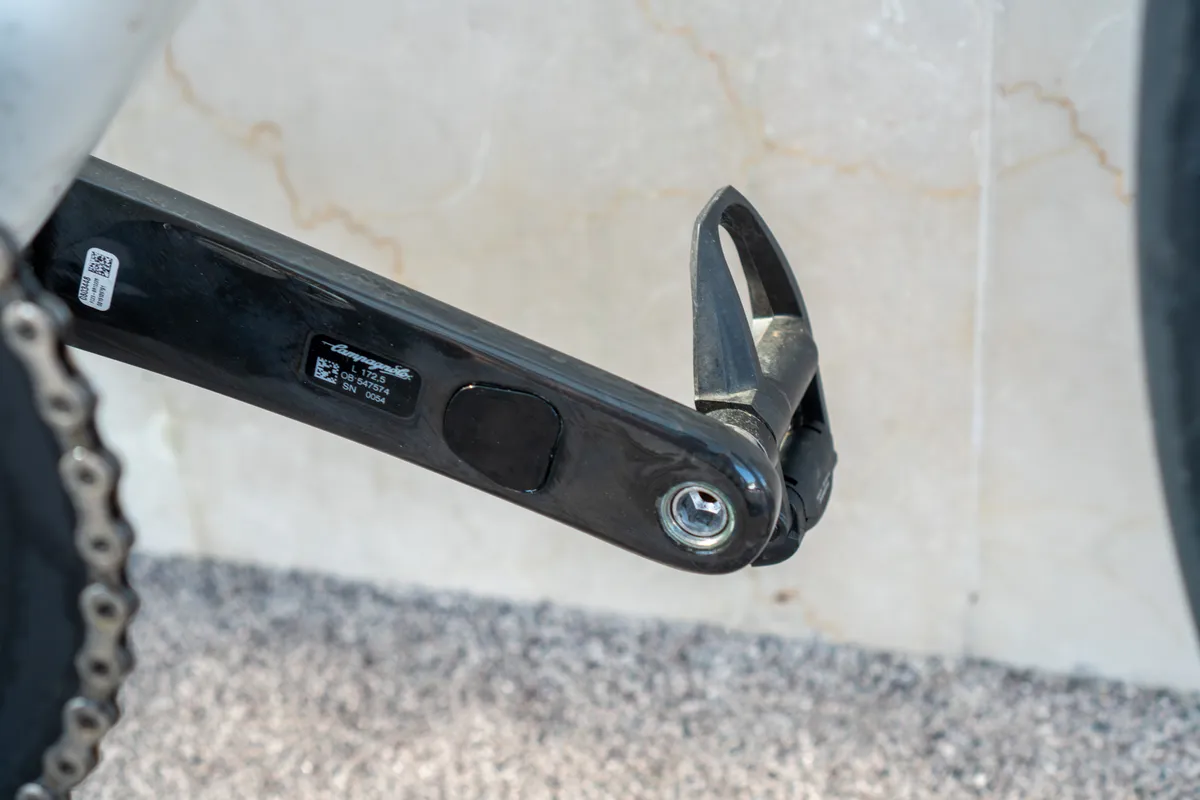
However, I am saddened to see the apparent ditching of mechanical groupsets. While the decision is undeniably market-driven because both Shimano and SRAM have abandoned mechanical shifting at the top-tiers, Campagnolo could have carved a niche here and attracted a larger share of riders.
I suspect the high £4,499/$5,399/€5,200 asking price is going to put off a lot of prospective buyers. It’s more than £1,000 higher than SRAM Red eTap AXS, which retails for £3,349/$3,648, and that’s with a power meter.
That said, Campagnolo has always considered its Super Record groupsets to be above Shimano Dura-Ace and SRAM Red. Our full review in due course will be able to shed light on whether that’s actually the case.
Product
| Brand | Campagnolo |
| Price | €5200.00, £4499.00, $5399.00 |
| Weight | 2520g |
Features
| Crank options | double |
| Speed | 12 |
| Brake type | hydraulic_disc |
| Cassette options | 10-25t, 10-27t, 10-29t |
| Chainring options | 50/34, 48/32, 45/29 |

